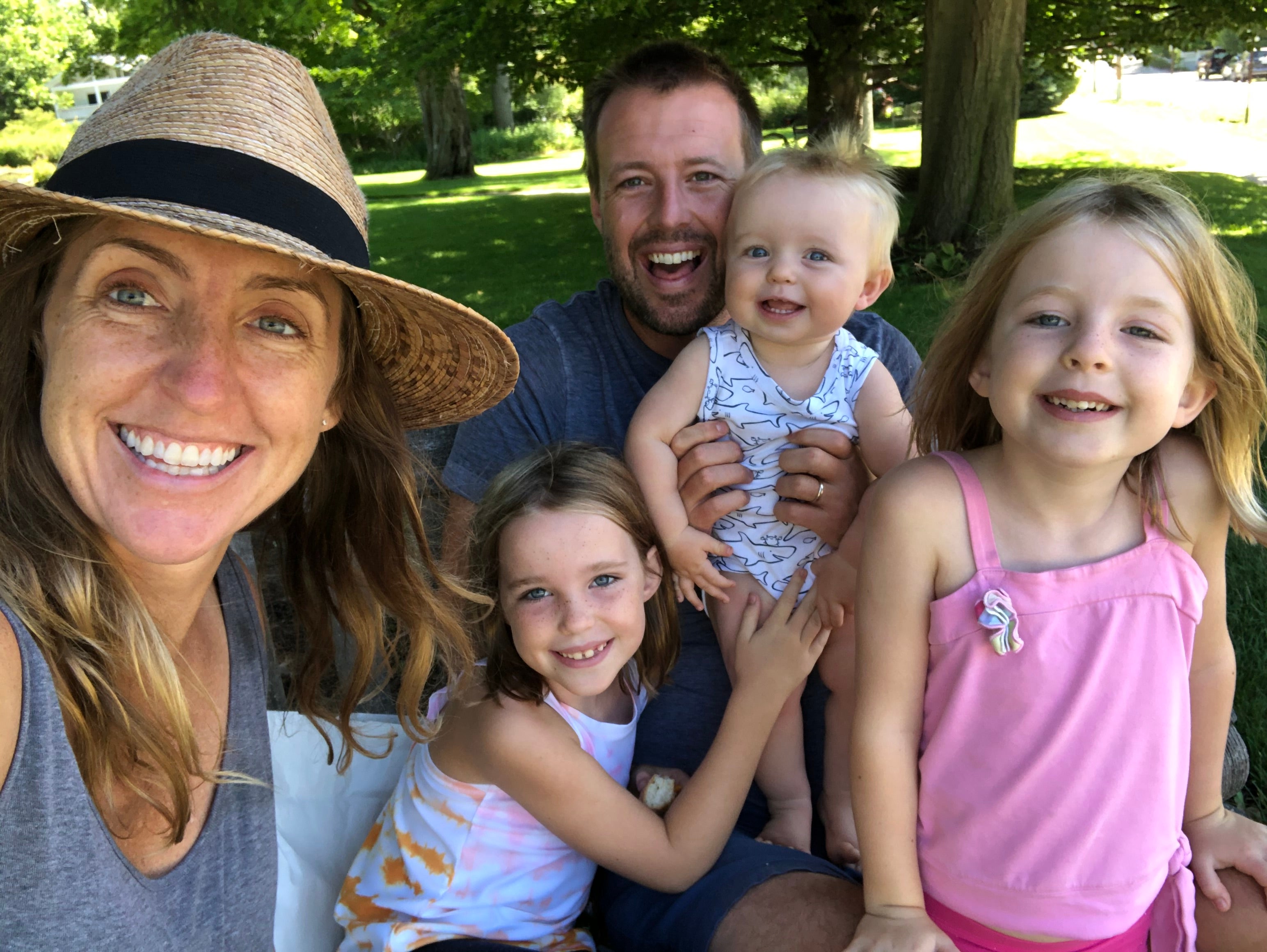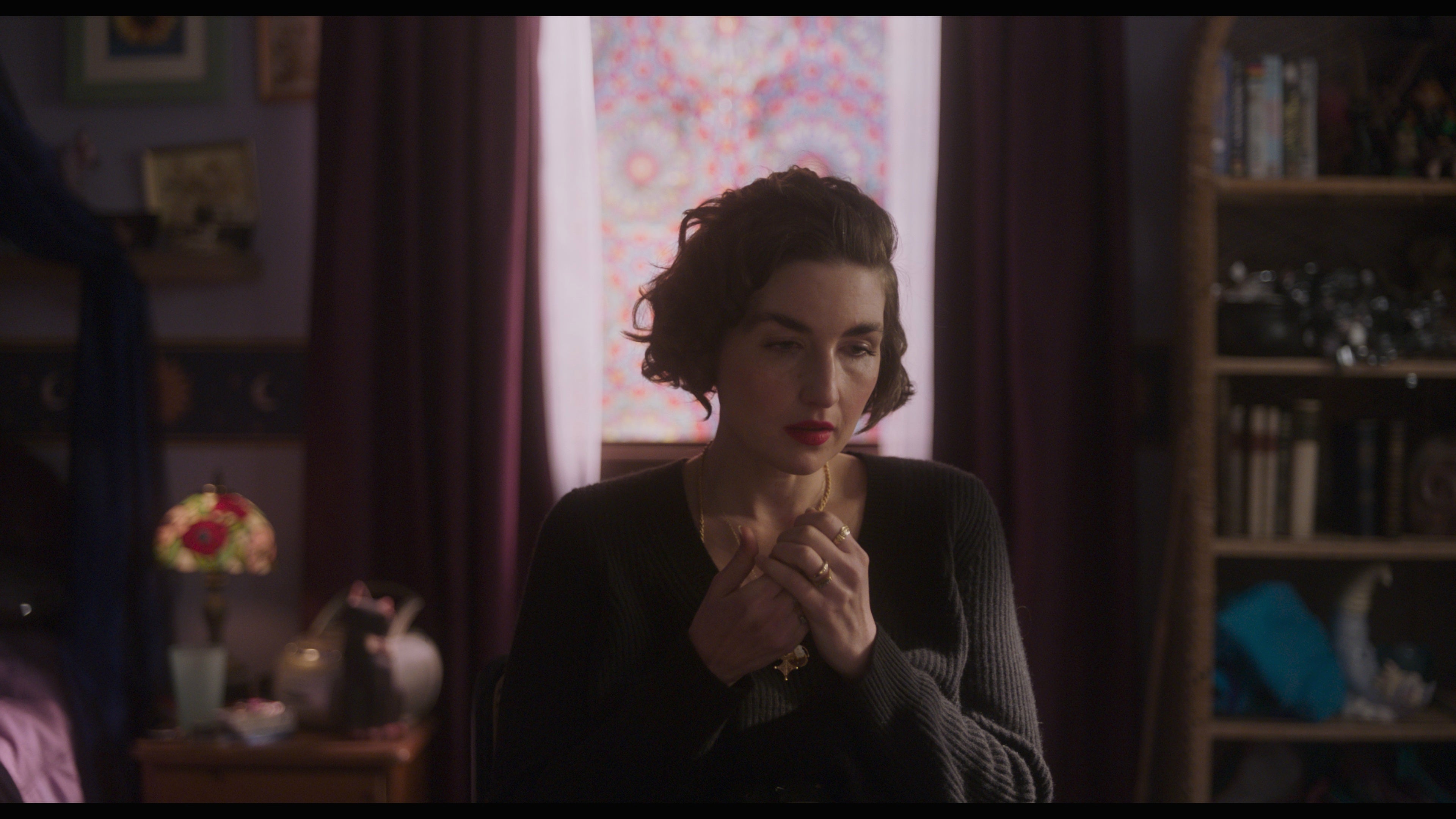The mental health of new mothers is being ignored – the results can be deadly
Postpartum psychosis – a severe and debilitating mental illness – affects 1,400 women in the UK each year, writes Olivia Petter. But the wider stigma around mental health support for new mothers means many struggle to access the help they need

The night before his wife died, Rich Baish texted a friend to tell him he thought she was suffering from postnatal depression. “I knew something was wrong,” he recalls, noting how the couple’s newborn daughter, Rosie, had struggled to latch while breastfeeding and been waking several times during the night. “My wife had become extremely anxious, telling me how everything felt exhausting. I empathised and said we’d go slowly and work through it all together.”
The couple also had a three-year-old son, Freddie. “I put it down to her trying to cope with the demands of a newborn as well as a toddler. I realise now this was the time I should’ve taken more drastic action.” They made changes: switching from breastfeeding to formula and making a habit of visiting the local garden centre on Saturdays. “One evening, when I was playing with our son, she looked at me and said, ‘You’re a really good person, you know that?’ Retrospectively, I knew by this point she’d made up her mind.”
One month after giving birth to Rosie, Rich’s wife took her own life. She had no history of mental health issues. “It was so sudden,” he says. “That’s what terrifies me now when I think of it. My wife’s decline was essentially over 72 hours.”
Postpartum psychosis is a rare but severe mental illness affecting roughly 1,400 new mothers in the UK each year. Between one and five of those result in suicide. Symptoms often come out of nowhere, often within the first two weeks of giving birth, and range from low mood and mania to delusions and hallucinations.
“Neither I nor my husband even knew it existed,” says Meghan Cliffel, who started suffering from delusions when her daughter was eight months old. “It was like a switch flipped,” she recalls. “I had this evolving plot that everyone was out to get me and my babies.” Things escalated until, one day, Meghan told her husband she wanted to go on the roof of their apartment building. “I was showing him I’d be willing to jump to prove my loyalty to what we were up against.”
Thankfully, Meghan got the help she needed – though it was only six weeks after she was released from hospital that a doctor mentioned postpartum psychosis as an explanation – and was able to make a full recovery. But due to a combination of societal stigma, lack of knowledge, and millennia of medical misogyny, too many women are not. In the UK, suicide continues to be the leading cause of maternal death between six weeks and 12 months after birth, accounting for 39 per cent of deaths in this period. Just one-third (37 per cent) of the women who died were known to have a previous or existing mental health condition.
“I think my doctors suspected it was ‘baby blues’ and nothing more,” recalls Jenny Shaw Powell, who experienced postpartum psychosis five days after giving birth. At first, she struggled to get her symptoms taken seriously and after experiencing paranoia and insomnia, she was referred to a doctor who prescribed her propranolol for anxiety. “My partner was really struggling as she had noticed I was very distant and spaced out,” she adds. “I wasn’t making sense in some conversations and had extreme highs at about 4pm every day but was very quiet the rest of the time. I sensed something was wrong but was trying desperately to hide it.”
One former midwife tells me that while she was trained in postpartum psychosis, she never spoke to expectant mothers about the risks. “You don’t want to scare them,” she says. “In the same way that you wouldn’t tell them they could have a major obstetric haemorrhage during labour. It’s just not something that’s discussed as part of routine care.”

Campaigners are calling for that to change. “Women with postpartum psychosis have no voice,” says Dr Jess Heron, CEO of Action on Postpartum Psychosis (APP), the national charity for women and families affected by postpartum psychosis. “The complete absence of women’s stories combined with sensationalist reporting of postpartum-related tragedies in the press had led to poor public understanding, insufficient medical knowledge, and women carrying shame and trauma for their lifetime.”
While there are some increased risk factors for postpartum psychosis, including bipolar disorder, schizophrenia, and a family history of mental illness, in most cases, there are no clear causes. Hence why early intervention is essential. “This illness strikes completely out of the blue,” adds Heron. Early symptoms can include anything from irritability and mood fluctuation to confusion and insomnia.
Following the birth of her son, Albie, Georgina Hackney didn’t sleep for almost seven days. “The psychosis actually started halfway through my labour,” she recalls. “I was very sleep-deprived by that point already and had lost touch with reality. I thought that I could see dead relatives and that the reason I could was because I was going to die once Albie was born and pass over into the afterlife.” Georgina experienced intense hallucinations as well as delusions after giving birth. “I believed that if I slept, I would die.”

The cases of postpartum psychosis we hear about are often the most extreme: abandoned newborn babies or, in even worse circumstances, infanticide. In the UK, the most well-known case is that of Dr Daksha Emson, a 34-year-old psychiatrist who, in 2003, took her own life as well as that of her three-month-old daughter, Freya. A similar case happened in the US: in 2023, Lindsay Clancy, who had no history of poor mental health, killed her three young children before attempting to take her own life. Although she was never officially diagnosed with the condition, her lawyers cited “the possibility of postpartum psychosis” in their defence when she was taken to trial. Last October, her husband, Patrick, told The New Yorker: “I wasn’t married to a monster – I was married to someone who got sick.”
Such instances are rare – according to APP, just one postpartum psychosis-related infanticide occurs in the UK each decade – but the fact it does happen shows how seriously the condition should be taken. They also explain why it remains so stigmatised – and subsequently under-researched. Nothing is quite as sinister as a mother capable of harming her children. The thoughts themselves are completely at odds with societal views around motherhood, which to this day remains enshrined in benevolence, caretaking, and everything that womanhood is supposed to be about.

“After I gave birth, I had this idea that I was a bad woman and a bad mother,” says Elizabeth Sankey, whose documentary, Witches, explores her own experience with severe postpartum anxiety and depression that she believes could’ve escalated to psychosis had she not been treated sooner. “For me, it was mainly lack of sleep as well as intrusive thoughts that become more overwhelming until you start to feel like there’s no way out,” she says. In Witches, Sankey describes feeling deeply ashamed at the thoughts she was having, which mainly centred around harming herself as well as her son. “What Lindsay Clancy did, I totally understand where that impulse came from and that’s what’s so terrifying,” she adds.
Framed within stories of witchcraft, Witches cleverly showcases the alarming extent to which society has consistently failed and persecuted women throughout history, particularly when it comes to our health. At one point, Sankey explains how, during the witch trials that took place around the world between the 15th and 18th centuries, women accused of witchcraft (many of whom were mothers) often reported seeing the devil. “This kind of thing comes up all the time in postpartum psychosis cases,” says Sankey. “These women didn’t have a way of explaining what was going on with them. They didn’t have the language, so they would put it on themselves or blame it on the devil and confess to being witches purely because it offered an explanation.”

Sankey isn’t the only filmmaker exploring the topic of postpartum psychosis. Take Beth Park, whose award-winning short film, Wild Animal, sets motherhood within the horror genre. “Those two worlds are a perfect marriage to me because there aren’t enough films about the realities of being a new mother,” she says. “You’re not ready for it because there’s this historical feeling of having to protect women who haven’t had children by not telling them what it’s like, as if we’re collectively keeping a secret.” The film, which begins with a woman finding a child abandoned on the side of the road, is inspired by Park’s own experiences with postpartum anxiety that, like Sankey, she feels could’ve progressed to psychosis. “I was totally unprepared,” she says of motherhood. “The experience just hit me like a truck and I felt like I’d been spread across the motorway in thousands of pieces.”
The most severe symptoms of postpartum psychosis can last anywhere between two and 12 weeks. With the right treatment – usually a mix of psychiatric medication and psychotherapy – most people will make a full recovery. In the UK, this generally takes place in mother and baby units, which are specialist psychiatric facilities that treat women with postpartum psychosis while allowing them to continue taking care of their babies. Occasionally, though, the women who end up there do so out of luck more than anything else.
“I had never heard of postpartum psychosis and was never told about it in any of the courses I attended whilst pregnant,” recalls Jenny. “The signs were not spotted quickly enough, but I was very lucky to be diagnosed when I was, with the help of my partner mentioning it to the midwife.”
There are several mother and baby units in the UK, partly thanks to awareness raised in the wake of Daksha and Freya’s deaths, but relatively few in the US, where postpartum psychosis isn’t even listed in the Diagnostic and Statistical Manual of Mental Disorders, the American psychiatric guide used in much of the world. “This likely hinders our recognition and diagnosis and study of the condition,” says Susan Hatters Friedman, an Auckland-based psychiatrist specialising in forensic psychiatry and maternal mental health.

Those in America also don’t benefit from the Infanticide Act 1938, which provides a special form of mitigation for women in the UK who kill their babies within a year of birth. “It offers an alternative to murder or manslaughter, with a maximum sentence of life imprisonment,” explains Dr Karen Brennan, senior lecturer in the School of Law at the University of Essex. It’s available in instances where the mother had a psychiatric illness caused by or connected with giving birth or breastfeeding. “The benefit of the infanticide law is that it allows for a conviction and sentence that reflects the seriousness of the crime – the homicide of a vulnerable baby – while also recognising that the difficult, unique and tragic circumstances involved warrant mitigation in the criminal law in terms of conviction and sentence.”
In 2023, Rich cycled from Glasgow to Oxfordshire, raising more than £53,000 for APP, where he now works. “The peer support offered by APP has been so helpful in terms of connecting me with other bereaved dads,” he says, noting how he sought as much support as possible in the wake of his wife’s death. “I didn’t want to be a hero,” he adds. “I was in complete survival mode and wanted to do everything I could to protect my children. Their mum would be so proud of them, and while I’m not a spiritual person, I’m heartened to know that she’s living on through them.”
Despite what happened to his family, Rich doesn’t want people, particularly expectant mothers, to be scared of postpartum psychosis. “In the same way that when I teach my children how to cross the road safely, I want them to know the road can be dangerous, but there are steps to follow to make it safer. I want mums and their loved ones to know that it is a real threat but there is plenty of support and help available. It is a curable illness but it’s also a medical emergency, one that should be taken as seriously as a heart attack.”
For postpartum psychosis information and support, visit app-network.org. For urgent care, contact your GP, midwife, mental health crisis service, or NHS 111. If PP is suspected, same-day admission to a specialist mother & baby psychiatric unit (MBU) should be gained. If you are concerned about an imminent risk to life, call 999. If you are struggling with suicidal thoughts and need to talk to someone urgently, contact Samaritans 24/7 on 116 123



-exam-simulation.jpeg?quality=75&width=230&auto=webp)


Join our commenting forum
Join thought-provoking conversations, follow other Independent readers and see their replies
Comments